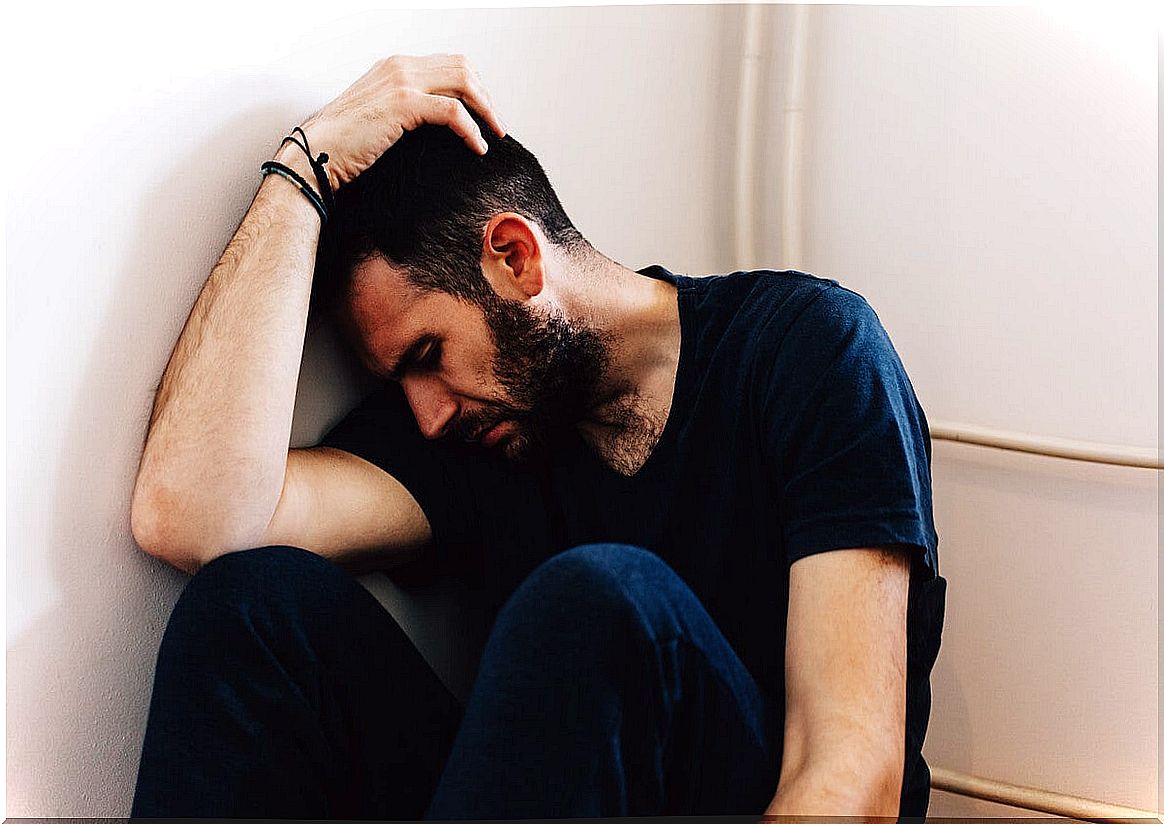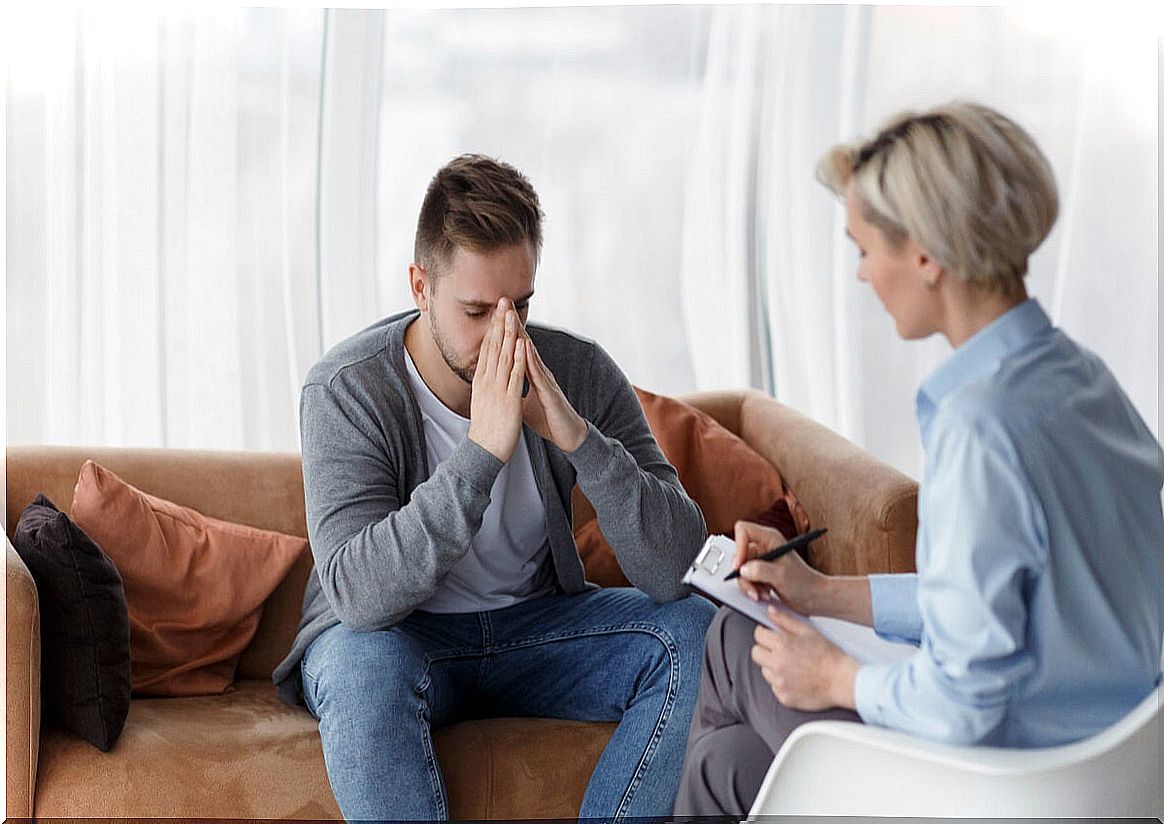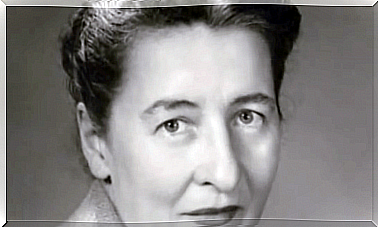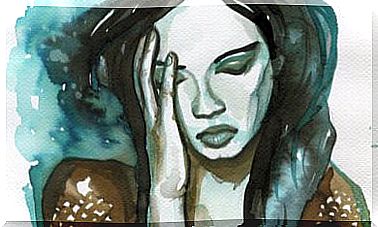Coping With Generalized Anxiety Disorder

To cope with generalized anxiety disorder, the first step is to become aware of this condition. The personal, social and work deterioration that the person can reach in these cases can be very marked. Thus, a series of basic changes and strategies must be integrated into the psychological therapy itself and the possible pharmacological approach —benzodiazepines—.
When it comes to managing, healing and treating any psychological disorder it is necessary to apply a multidisciplinary approach. Generalized anxiety is still a highly complex clinical reality that, on average, lingers for quite some time. There are physical symptoms to attend to, emotional states to manage, and cognitive processes – thoughts – to control.
It is necessary for the person to assume an active and committed role. As challenging as it may seem, what is going to be carried out is a brain training to reduce the volume of worries, integrate a healthier mental approach and reformulate old cognitive and behavioral schemes that will allow you to gain in well-being.

Coping with generalized anxiety disorder: a social approach
When it comes to coping with generalized anxiety disorder, the first step to take into account is the social approach. In this area, a series of dimensions are integrated that will guarantee success and positive changes.
To begin with, studies, such as those carried out at the University of Göttingen (Germany), indicate that generalized anxiety is one of the most prevalent mental health problems.
However, although its incidence is high, it is not treated as it should. The reason? This psychological condition shows so much physical symptoms that it is more common to request help for headaches, dizziness or digestive disorders, ignoring the mental aspect.
The psychological root is neglected or undiagnosed. This supposes a recrudescence of the disorder itself in the short and long term. Therefore, it is important that we consider the following:
Valid social support: avoid isolation
Generalized anxiety invalidates and puts the person in a constant state of worry and physical and mental exhaustion. This often makes them drift into thinking that nobody understands them, that it is better to be alone and deal in silence with that psychological discomfort. This is just what we should avoid.
- You have to seek the support of someone to talk to and who understands your own reality, trying not to rush into trials.
- Talking with friends, family or your partner can serve to relativize many of your worries. It is a way to deactivate negative mental patterns and see things from another perspective.
Loneliness and isolation tend to intensify psychological distress. Close support is essential to move forward on a day-to-day basis.
Seek support from a specialized professional
When dealing with generalized anxiety disorder, a specialized psychologist is necessary. Practices such as yoga or mindfulness are helpful, but they are not a clinical intervention. Faced with a disorder, we need a valid approach oriented to the treatment of anxiety and, for this, it is best to have the help of a professional.
Also, in some cases, the psychological therapy approach may need to be supplemented with pharmacological support. Once again, let us bear in mind that although psychotropic drugs provide relief and allow us better rest and greater control over ourselves, by themselves they will not solve the problem of generalized anxiety.
Daily commitment to psychotherapy and change
Without awareness and commitment, there is no change. If we leave therapy after two weeks, the shift towards wellness will not come. To deal with a generalized anxiety disorder dragged in time, we will have to carry out long and delicate therapeutic work. Something like this requires of us will, motivation and a firm alliance with the professional who helps us.

Psychological strategies
Research works, such as those carried out at the University of Amsterdam (Netherlands) indicate that at present, cognitive-behavioral therapy remains a valid approach to face generalized anxiety disorder.
Likewise, it never hurts to know some strategies and other techniques that are helpful in this type of psychological condition.
Cognitive restructuring
Patients with generalized anxiety show a pattern of persistent and excessive worry. This leads them to anticipate the worst in each circumstance, to feel that they have no control over their surroundings and lead to states of irritability and mental exhaustion.
In these circumstances, different resources, such as cognitive restructuring, can help.
- Irrational thoughts must be transformed into rational ideas.
- It is good to detect polarized thoughts, generalizations, catastrophic ideas and any reasoning that encourages suffering.
- The idea is to identify all those thoughts, accept them and then transform them into healthier ideas.
Emotional management to cope with generalized anxiety disorder
Recognizing the negative valence emotions that are behind many of those worrisome thoughts is another strategy that should be worked on in these cases. Reducing the level of alertness, hyperarousal and anxiety is essential to manage everyday anxiety.
Acceptance and commitment techniques
In recent years, acceptance and commitment therapy is becoming an interesting and effective resource for addressing mood disorders. How can it help us in the case of generalized anxiety?
- To learn to tolerate life difficulties and challenges. Fear is also part of life.
- Clarify personal values to find new motivators.
- React healthier to adverse emotions.
- Initiate changes that help us to be in harmony with our own values.

Physical strategies for generalized anxiety
When it comes to coping with generalized anxiety disorder, social and psychological aspects are key. Psychological therapy, our own commitment and the support of ours are decisive for successfully passing through this stage. Now, as complementary tools, it never hurts to integrate some physical strategies.
We analyze them.
Relaxation and breathing techniques
Relaxation and deep breathing techniques are everyday resources that can always be helpful. At our fingertips we have approaches such as Jacobson’s progressive muscle relaxation, Schultz’s autogenous training or mindfulness .
Physical exercise
Walking, jogging, swimming, dancing, Pilates … Any physical activity is valid and cathartic to reduce the physical impact of anxiety.
Good night’s rest
Sleeping well allows us to improve our quality of life in every way. A rested mind can meet any challenge; Let’s keep it in mind.
To conclude, as we can see, when dealing with generalized anxiety – like any other psychological disorder – it is not enough just to go to therapy. Even less with resorting to drugs exclusively.
We need our commitment, a clear will to change, and those little everyday ingredients that act as drivers for recovery and wellness.









